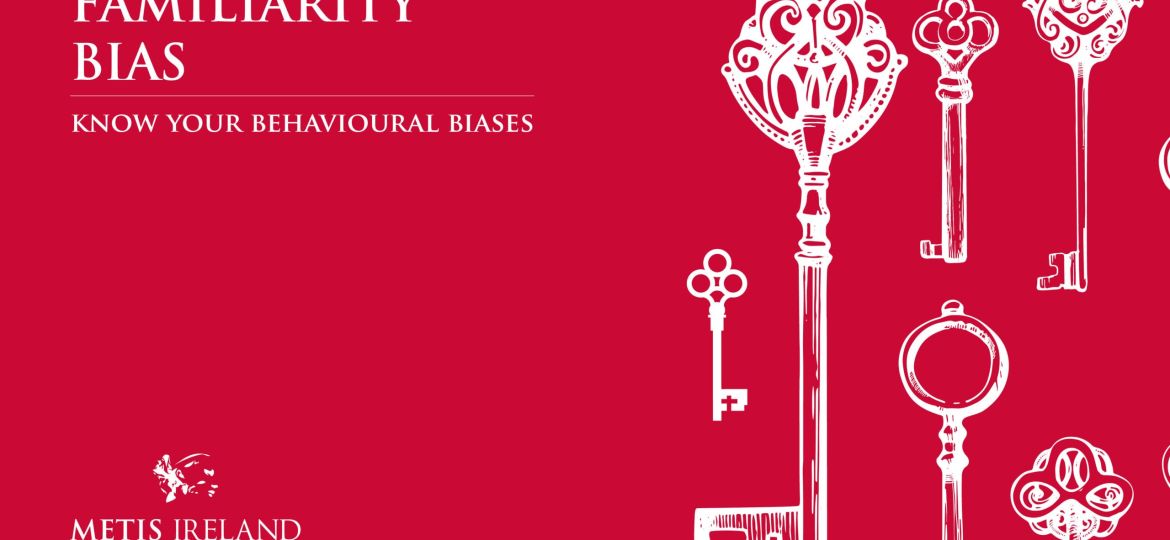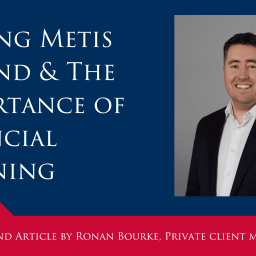
Investment is a long-term pursuit – it’s about setting out a plan, devising a strategy and then sticking to it. We know that past performance doesn’t guarantee future returns and we accept there’ll be ups and downs along the way. But in the long run, a well-planned and executed investment approach stands to help us grow our money.
So why do we keep getting tempted to meddle with it in ways that aren’t sensible, ways that are even dangerous? What is it about our human make up that makes us veer towards irrational, emotional moves that the mathematics just doesn’t support?
Welcome to your behavioural biases. There are 17 in total and they’re the hard-coded instinctive ways of working that get us through life, but play merry hell with our financial affairs. This week, we’re looking at familiarity bias.
Behaviour Bias #4 – Familiarity
If you read last week’s entry in this series, you’ll know all about confirmation bias – the tendency to seek out information that backs up what we’ve already decided on, and to reject or ignore anything that runs counter to it. Familiarity bias is similar, in the sense that it’s all about the human tendency to stick with what we know, but financially it plays out in different ways.
Familiarity bias is another mental shortcut that we use to more quickly trust (or more slowly reject) an object that’s familiar to us. Think about things like cheering for your home team, speaking more openly with friends than strangers, or favouring a job applicant who (all else being equal) has been recommended by one of your best employees. It’s the same even with smaller decisions – choosing one brand over another, watching a favourite show on TV or the pint of beer you order. If any of these sound familiar, congratulations, you’re making good use of familiarity bias.
When is it harmful?
Familiarity bias lies somewhere between ‘better the devil you know’ and passive routine behaviour, but it also adds a little bit of loyalty – simply choosing the thing you know and love. There’s nothing wrong with it; even if we feel we’re the type who enjoys trying new things, the familiar is often comforting.
But with money, it’s a different thing altogether. Studies have shown that familiarity bias can cause investors to skew their allocations in ways that just don’t make sense. Examples might be choosing familiar companies over those we haven’t heard of, picking Irish companies instead of foreign firms, or overweighting in types of asset that we feel we know (that we’re familiar with). We instinctively assume familiar holdings are safer or better even though, clearly, we can’t all be correct at once. We also tend to be more comfortable than we should be in bulking up on company stock in our retirement plan.
What we gain is a sort of false peace of mind that actually flies in the face of sound investment practice. Considerable evidence tells us that a broad, globally diversified approach best enables us to capture expected market returns while managing the risks involved.
Experienced, professional and objective advice is essential because, like confirmation bias and other phenomena that we’ll explore in this series, it’s much easier to spot in others than it is to recognise in yourself. A qualified Financial Planner will be able to help you set out your goals and then stick to them – even in the face of temptation.
Keep bias at bay
It’s surprising how hard it can be to simply let things be. Knowing why we react in the ways we do is the first step to avoiding the counterintuitive actions that can damage what we set out to achieve with our investments.
You can download Making Better Decisions: Know Your Behavioural Biases in full today.
Carl Widger
Co-Founder & Director
Email: cwidger@metisireland.ie
Disclaimer
Metis Ireland Financial Planning Ltd t/a Metis Ireland is regulated by the Central Bank of Ireland.
All content provided in these blog posts is intended for information purposes only and should not be interpreted as financial advice. You should always engage the services of a fully qualified financial adviser before entering any financial contract. Metis Ireland Financial Planning Ltd t/a Metis Ireland will not be held responsible for any actions taken as a result of reading these blog posts.
















